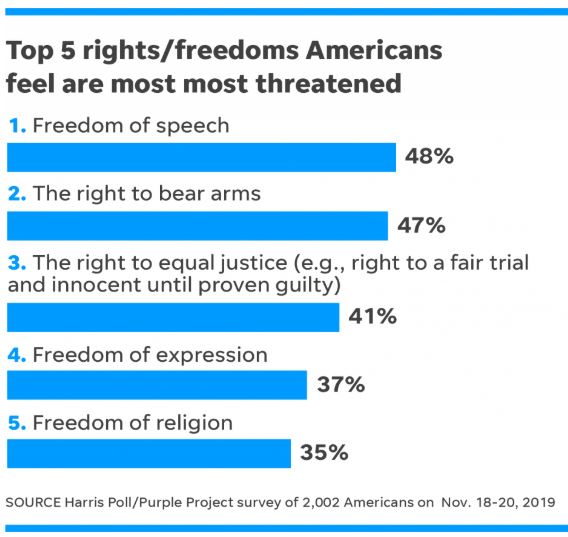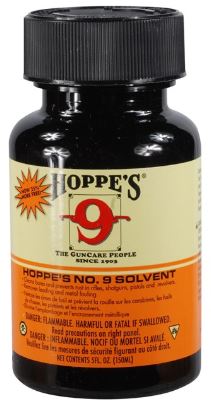From PJMedia comes this little snippet:

I’m not going to comment on the article itself, but on the poll about which it speaks.
You see, we all know about the attacks on our Second Amendment rights — Virginians most recently, Californians, New Yorkers and Illinoisans in perpetua — and of course we are, and should be, permanently vigilant about those, especially as its the fucking government — federal, state and local — who inflict gun control on us law-abiding citizens (aided and abetted, it should be said, by the Jackals Of The Press — JOTP — who never saw a gun they didn’t hate).
Likewise, the right to a fair trial, and the presumption of innocence, is often trampled upon by the fucking government — where, for example, law enforcement officers can lie to a suspect with impunity in order to extract a confession, but lying to a law enforcement officer carries a prison sentence (ask Martha Stewart). You could also ask the late Richard Jewell about that — the Fibbies publicly named him a “person of interest”, whereupon the JOTP pounced on that and helped them in their pretrial conviction in the public eye.
It’s the other three freedoms that concern me almost as much, because those are under attack not only by government (e.g. “hate speech” — whatever that is) but also by non-governmental institutions such as universities, corporations and social media (once again, aided and abetted by the JOTP). We can all agree that murdering someone is bad; but shouting “You filthy nigger!” as you murder him, according to the gummint, is somehow much, much worse.
And you can join a completely fascist organization like Pantifa (despite their name) without penalty, but joining the KKK is OMG so beyond the pale. Yeah, I know: joining a fascist organization is just freedom of association, but joining a racist organization… well, that deserves censure, saith the scolds and bureaucrats.
And FFS: I’m not supporting the KKK, those morons; I’m simply saying that freedom of association means you should be able to associate freely with anyone you want. To my mind, Pantifa is just as bad as the Klan — but if we’re going to shut down an organization because of its lawless activities, how about rounding up and arresting every known member of MS-13? Never mind, they’re just a Hispanic social club, right? It is, as they say, to laugh.
Oh, and try to form a men-only club, and see how long it takes for a feminazi-inspired lawsuit to hit your doorstep.
Likewise, if we are free to practice our religion, feel free to wear a yarmulkah in downtown Dearborn in Michigan, just to see what happens. And good luck wearing that crucifix around your neck as a customer service person working, say, for an airline. Somehow, the very sight of said religious symbols are “provocative” to the adherents of other religions. Well, I’m provoked beyond words by those niqabs and burkas that Muslim men force on their women, but I’m not going to kick the shit out of the man walking next to a woman so clad — as much as I’d like to. And I wouldn’t want to ban the stupid clothing, either, unless we have a situation where a woman refuses to remove her veil for a driver’s licence photograph. (“No face? No licence” should be the rule, but noooo.)
Yeah, I know that all this is full of pitfalls and contradictions, but that’s all part of living in a free society, isn’t it?
What I’m saying is that we don’t, anymore. Somehow, we’re having our freedoms circumscribed just because some people think that freedom is fine unless they get offended by the freedom of someone else. Then it’s time for shitty laws and even worse, penalties.





